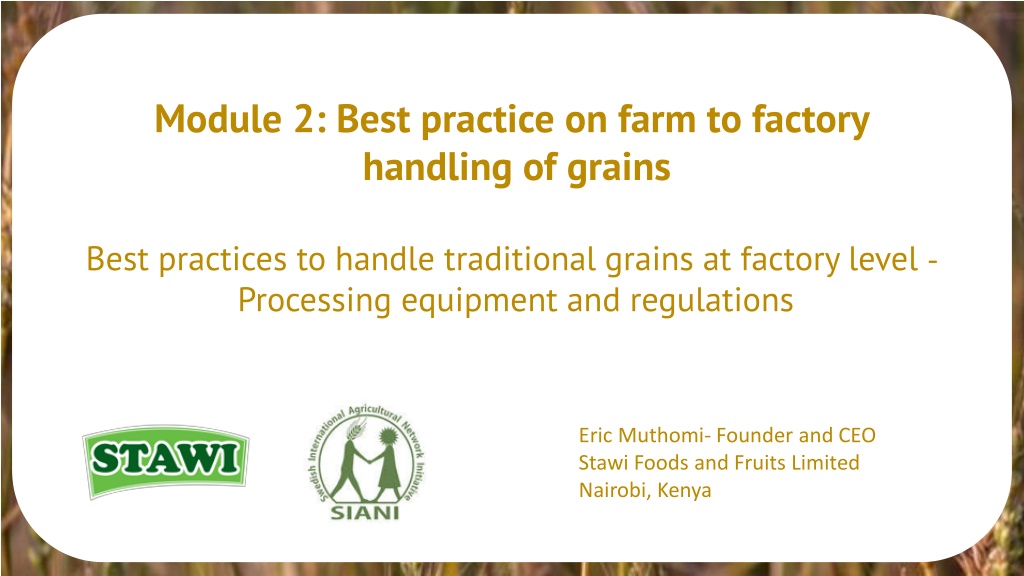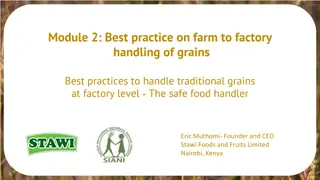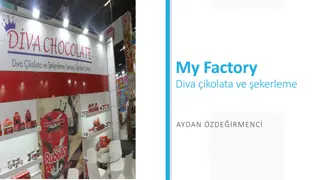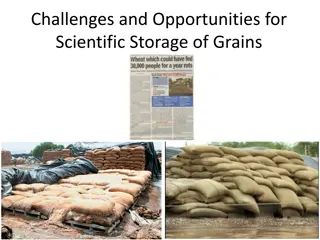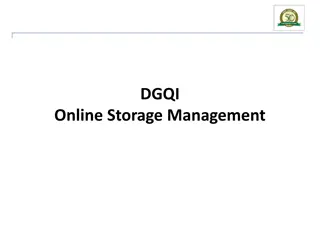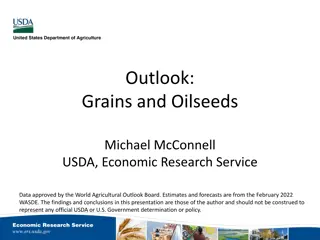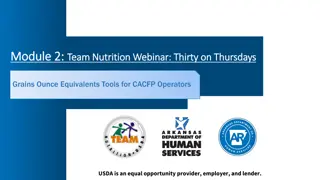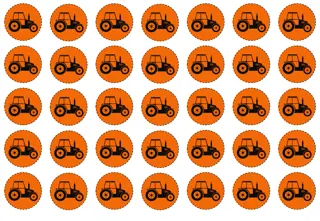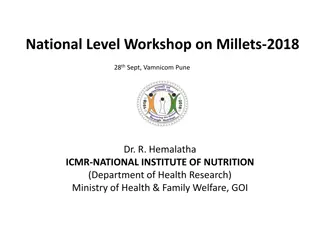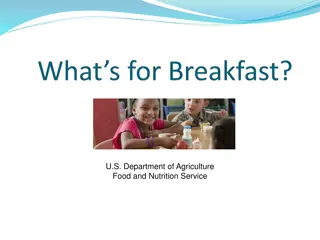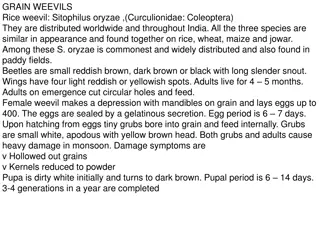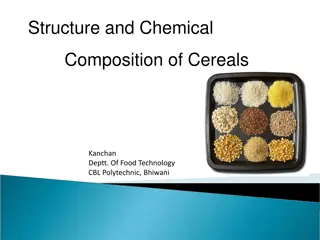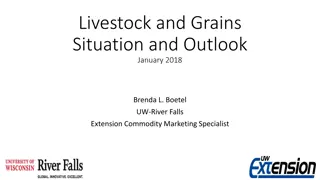Best Practices for Handling Grains at the Factory Level
Explore the comprehensive guide by Eric Muthomi, Founder and CEO of Stawi Foods and Fruits Limited in Nairobi, Kenya, on the best practices for farm-to-factory handling of grains, specifically traditional grains. The article covers essential steps and corresponding equipment for processing grains, including receiving and weighing, cleaning, pre-cooking, milling, mixing, packing, and more. Additionally, it highlights common manufacturing facilities and regulations in grain processing, emphasizing standards, environmental regulations, occupational health, safety protocols, and COVID-19 business guidelines.
Download Presentation

Please find below an Image/Link to download the presentation.
The content on the website is provided AS IS for your information and personal use only. It may not be sold, licensed, or shared on other websites without obtaining consent from the author. Download presentation by click this link. If you encounter any issues during the download, it is possible that the publisher has removed the file from their server.
E N D
Presentation Transcript
Module 2: Best practice on farm to factory handling of grains Best practices to handle traditional grains at factory level - Processing equipment and regulations Eric Muthomi- Founder and CEO Stawi Foods and Fruits Limited Nairobi, Kenya
Steps to process grains and corresponding equipment Process Equipment Grain moisture meter, aflatoxin test kits, weighing scales, lifting equipment Manual, Sieves, destoner, grain sorter Receiving and weighing Cleaning Pre-cooking Extruder Milling Hammer mill, disc mill, roller mill Mixing Ribbon blender Impulse sealer, semi/fully automated packing machine Hydrothermal treatment line Packing Hydrothermal treatment
Receiving and weighing Aflatoxin test kits Weighing scale Load lifter Grain Moisture Meter
Cleaning and sorting Manual grain cleaning Grain cleaning screens Grain destoner
Precooking Grain roaster Grain twin extruder
Milling Disc mill Hammer mill Roller mill
Mixing Powder mixer
Packing Continuous Plastic Bag Sealing Machine Bag sewing machine Impulse sealer
Common manufacturing facilities To avoid high start-up costs, food innovators can have access to common manufacturing facilities: Public Universities e.g. Makerere University, Uganda Public Research Centers e.g. Kenya Industrial Research and Development Institute Private Manufacturers providing contract manufacturing services
Regulations in grain processing - National Bureau of Standards e.g. UBS, KEBS - Environment regulations on waste, noise, packaging e.g. NEMA - Occupational Health and Safety - Business permit - Business registration - Tax compliance - Food handlers permits - Building code - COVID-19 Business Guidelines (Social/physical distancing floor markings, temperature guns, hand wash stations, sanitizers, masks, disinfecting processing/sanitary facilities, safety protocol for emergencies, contact tracing mechanism).
To learn more about how to safely manage raw materials and equipment, please read the next chapter
